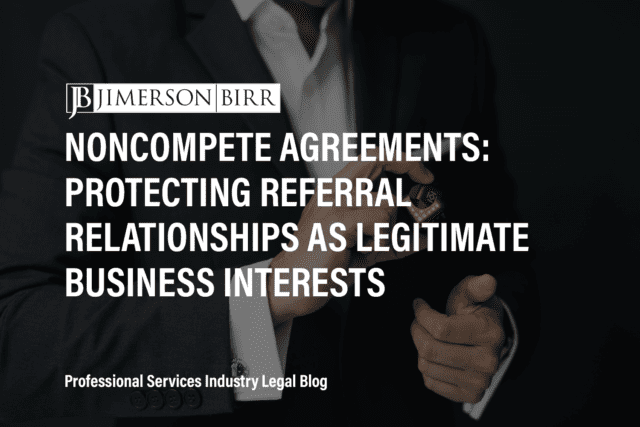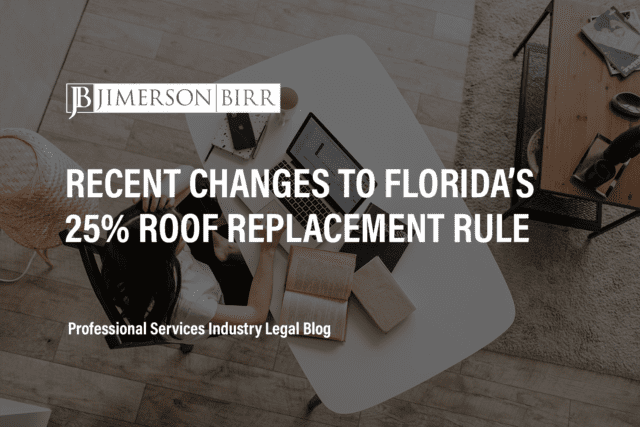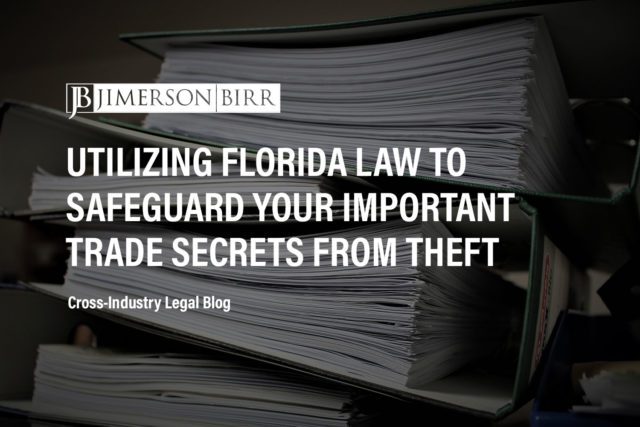What is the importance of trade secret protection?
Trade secret protection safeguards valuable and confidential information businesses use to gain a competitive edge. For Florida employers, trade secret protection is crucial to preserving their competitive advantage and fostering innovation. Trade secrets include customer lists, pricing strategies, product formulas, or proprietary software. Losing trade secrets to competitors may result in significant financial losses and long-lasting harm to a business’s reputation.
For instance, suppose a former employee misappropriates customer lists and shares them with a competing business. In this case, the employer could file a lawsuit against the former employee and the competitor to seek damages, injunctive relief, and attorney’s fees. This legal recourse demonstrates the importance of trade secret protection in preserving the value of a company’s confidential information under Florida and federal law.
Need a legal advocate to evaluate your trade secret protection options? Schedule your consultation today with a top trade secret protection attorney.
How do trade secret protection policies apply to trade secret protection?
To protect trade secrets in Florida, employers should prepare agreements and policy implementation procedures that address confidentiality, non-competition, and non-solicitation. By doing so, businesses can safeguard valuable information and customer relationships. For instance, a non-disclosure agreement (NDA) can require employees to maintain the confidentiality of trade secrets and other sensitive information during and after employment. Additionally, non-compete agreements can limit the ability of employees to work for competitors or start competing businesses. In contrast, non-solicitation agreements can prevent former employees from poaching customers or staff.
For example, suppose a Florida-based tech company implements a robust NDA and non-compete agreement for key personnel to protect its proprietary software algorithms. Implementing these policies into regular business operations would help prevent employees from using the company’s trade secrets for their benefit or sharing them with competitors.
Please contact our office to set up your initial consultation to determine whether trade secret protection services may be available for your unique situation.
Which laws, procedures, and regulations apply to implementing trade secret protection policies in Florida?
Florida’s primary statute governing trade secret protection is the Florida Uniform Trade Secrets Act (FUTSA), codified in Fla. Stat. §§ 688.001–688.009. FUTSA addresses the misappropriation of trade secrets and provides remedies for trade secret owners. Additionally, the federal Defend Trade Secrets Act (DTSA), 18 USC § 1836, offers protection and remedies for trade secret misappropriation on a national level.
When drafting agreements and policies, employers should also be mindful of Florida’s restrictive covenant statute, Fla. Stat. § 542.335, which governs non-compete, non-disclosure, and non-solicitation agreements. This statute provides specific requirements and limitations for enforceability, such as reasonable timeframes and geographic scope. By adhering to these laws and regulations, employers can create agreements and policies that protect their valuable information and customer relationships in Florida.
How can employers strategically benefit from refining their trade secret policies?
- Preserving Competitive Edge: Employers maintain their unique selling points by securing trade secrets and preventing competitors from accessing proprietary knowledge.
- Attracting Investments: Companies with strong protection measures are likelier to attract investors, as they are committed to safeguarding valuable assets.
- Reducing Risk of Litigation: Properly drafted agreements lessen the likelihood of legal disputes over trade secret misappropriation or employee conduct.
- Retaining Customer Trust: Implementing protective measures ensures that sensitive customer information remains confidential, maintaining trust in the company’s commitment to privacy.
What steps should counsel take to facilitate policy implementation effectively?
Counsel should consider the following to protect their clients:
- Identify Key Assets: Determine which information and relationships require protection, such as trade secrets, proprietary technology, or customer databases.
- Research Applicable Laws: Review Florida and federal laws governing trade secret protection, non-compete, non-disclosure, and non-solicitation agreements, including the Florida Uniform Trade Secrets Act and the Defend Trade Secrets Act.
- Draft Tailored Agreements: Customize agreements to address specific business needs and ensure compliance with Florida and federal laws, such as reasonable timeframes and geographic scopes for non-compete clauses.
- Educate Employees: Provide training and guidelines on confidentiality obligations, non-compete, and non-solicitation terms, ensuring employees understand their responsibilities.
- Monitor Compliance: Implement monitoring procedures to detect potential breaches and respond quickly to suspected violations.
- Update Agreements and Policies: Periodically review and update agreements and policy implementation procedures to reflect changes in the business environment, legal landscape, and company objectives.
When a set of facts is appropriate for legal intervention, there are many paths a claimant may take. We are value-based attorneys at Jimerson Birr, which means we look at each action with our clients from the point of view of costs and benefits while reducing liability. Then, based on our client’s objectives, we chart a path to seek appropriate remedies.
To determine whether your unique situation may necessitate litigation or another form of specialized advocacy, please contact our office to set up your initial consultation.
Frequently Asked Questions
- Are non-compete agreements enforceable in Florida?
Non-compete agreements are enforceable in Florida, provided they meet specific requirements. Under Florida Statutes § 542.335, non-compete agreements must be reasonable in time, geographic scope, and line of business. Additionally, they should protect a legitimate business interest, such as trade secrets or customer relationships. Courts will enforce non-compete agreements if deemed reasonable and necessary to protect the employer’s interests.
- How can employers ensure their non-disclosure agreements (NDAs) are effective in Florida?
To create an effective NDA in Florida, employers should clearly define the confidential information they wish to protect and ensure that the agreement complies with Florida law. Employers should also include clauses outlining the consequences of breaching the agreement and the permitted use of confidential information. It’s essential to have the NDA reviewed by a Florida-based attorney with experience in trade secret law to ensure its enforceability.
- What steps can employers take to protect their trade secrets from misappropriation by former employees?
Employers can take several proactive measures to protect trade secrets from misappropriation, including implementing non-compete, non-disclosure, and non-solicitation agreements. Additionally, they should establish clear internal policies and procedures for handling and storing confidential information. Regular employee training on the importance of trade secret protection and their legal obligations is also vital. Finally, in the event of a breach, employers should act promptly, seeking legal counsel to determine the best course of action under Florida and federal trade secret laws.
Have more questions about how your company can transform its trade secret protection processes?
Crucially, this overview of preparing agreements and other documents with corresponding policy implementation procedures that allow employers to protect valuable information and customer relationships does not begin to cover all the laws implicated by this issue or the factors that may compel the application of such laws. Every case is unique, and the laws can produce different outcomes depending on the individual circumstances.
Jimerson Birr attorneys guide our clients to help make informed decisions while ensuring their rights are respected and protected. Our lawyers are highly trained and experienced in the nuances of the law, so they can accurately interpret statutes and case law and holistically prepare individuals or companies for their legal endeavors. Through this intense personal investment and advocacy, our lawyers will help resolve the issue’s complicated legal problems efficiently and effectively.
Having a Jimerson Birr attorney on your side means securing a team of seasoned, multi-dimensional, cross-functional legal professionals. Whether it is a transaction, an operational issue, a regulatory challenge, or a contested legal predicament that may require court intervention, we remain tireless advocates at every step. Being a value-added law firm means putting the client at the forefront of everything we do. We use our experience to help our clients navigate even the most complex problems and come out the other side triumphant.
If you want to understand your case, the merits of your claim or defense, potential monetary awards, or the amount of exposure you face, you should speak with a qualified Jimerson Birr lawyer. Our experienced team of attorneys is here to help. Call Jimerson Birr at (904) 389-0050 or use the contact form to schedule a consultation.

We live by our 7 Superior Service Commitments
- Conferring Client-Defined Value
- Efficient and Cost-Effective
- Accessibility
- Delivering an Experience While Delivering Results
- Meaningful and Enduring Partnership
- Exceptional Communication Based Upon Listening
- Accountability to Goals











